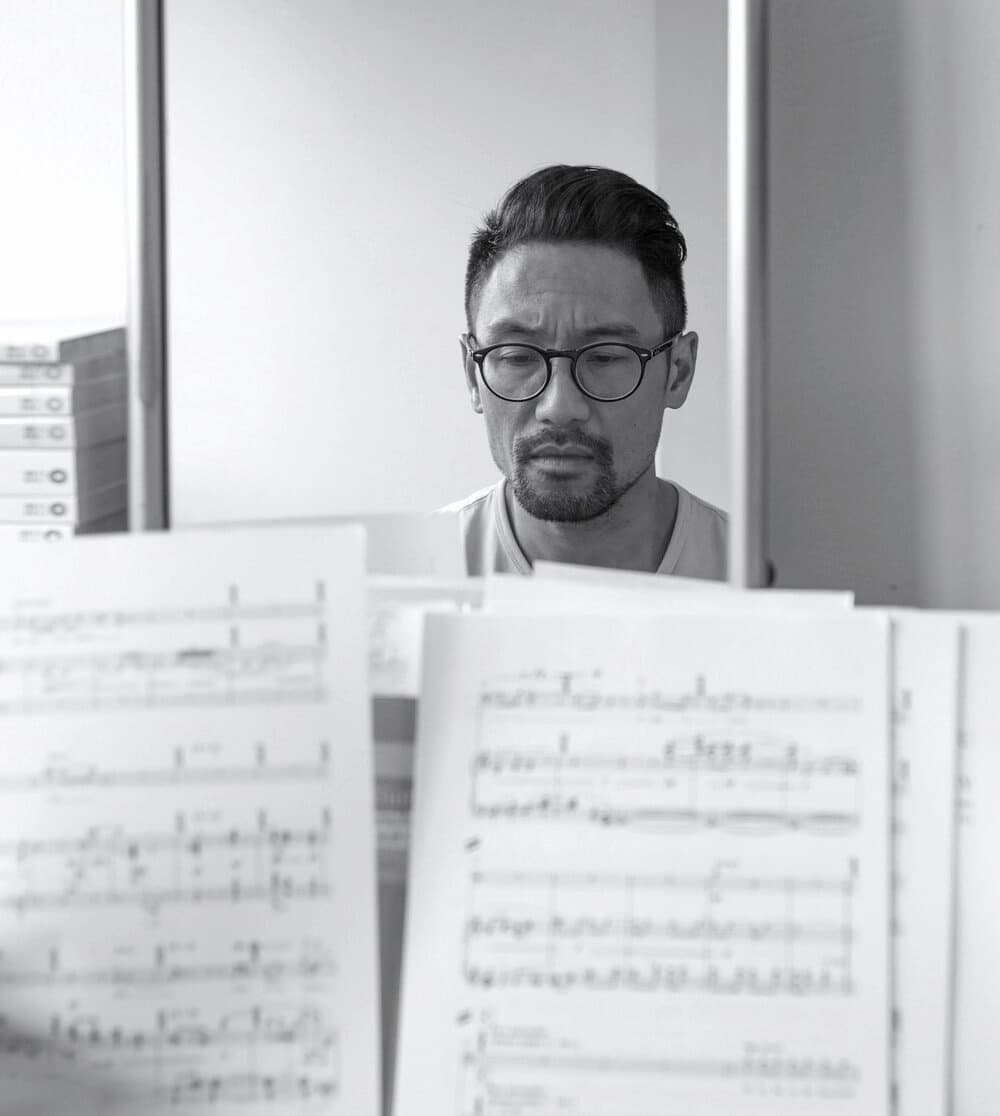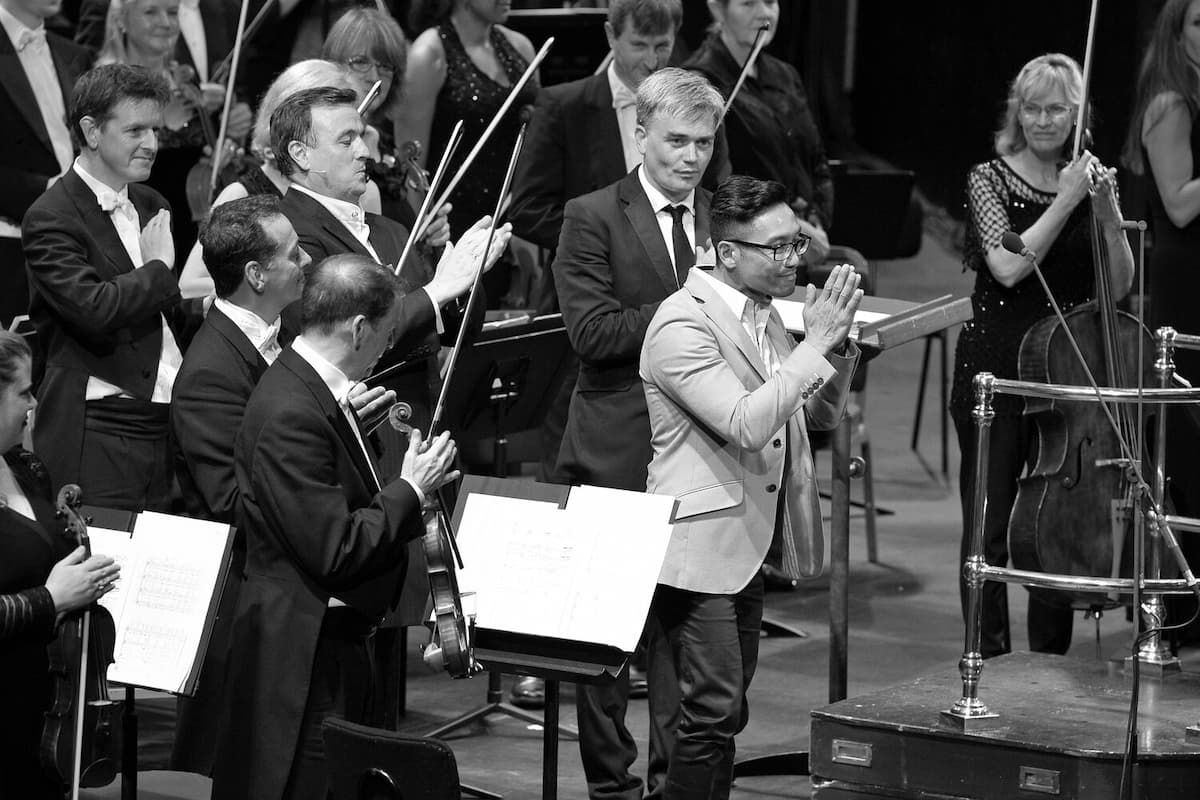Interlude last talked to composer and scholar Raymond Yiu in 2021 on the occasion of the world premiere of “Old Bei,” a work commissioned by the Hong Kong Philharmonic Orchestra to celebrate the Beethoven anniversary year. At the end of our talk, Yiu indicated that he was working on a violin concerto with strong links to Chinese culture.

Raymond Yiu © Donald Christie
That work, an expansive and heartfelt violin concerto, has now come to fruition and is scheduled for its world premiere performance at the Barbican on 20 March 2024. Clemens Schuldt will lead the BBC Symphony Orchestra, and Esther Yoo will be the featured soloist.
Strands of Inspiration
Hong-Kong born but residing in the U.K. since 1990, Raymond Yiu has now been joined by his parents and other members of his immediate and extended family. “Recently,” as he explained, “they have left their home country of Hong Kong and emigrated to the U.K, due to increased tensions in the region.” Raymond almost dejectedly added, “and it won’t get any better.”
With his family joining him in exile, Yiu was once more confronted by “feelings of homesickness, displacement and questions of identity.” As he explained, “it elicited a strong emotional reaction, a sense of nostalgia for a home he used to know, but one that no longer exists.”
Ma Sicong

Raymond Yiu
While the Violin Concerto is dedicated to Yiu’s parents and soloist Esther Yoo, it is deeply inspired by the tragic story of Ma Sicong, the famed Chinese virtuoso violinist and composer who suffered through the horrors of the Cultural Revolution. As the head of the Central Conservatory of Music in Beijing, he and his family had to eventually seek exile in the United States, and his reputation quickly faltered in his homeland.
Ma is probably best-known for his Inner Mongolian Suite of 1937, and specifically the second movement titled “Nostalgia.” As Raymond explained, “is considered by many Chinese to be one of the most poignant meditations on the sorrow of exile,” and he heard a recording during his formative years in Hong Kong.
Ma Sicong: Suiyuan Suite (Inner Mongolia Suite) – II. Nostalgia (Ku Hsiao-mei, violin; Ning Lu, piano)
For Yiu, “this particular work forms the emotional and motivic backbone to the concerto, as a hymn to celebrate the forgotten achievement of an immigrant in a strange land, as well as to provide a musical gateway for the audience to explore the development of Western Classical music in 20th Century China and beyond.”
Yiu Violin Concerto

Raymond Yiu at the Proms
Roughly 35 minutes in length, the Violin Concerto is Raymond Yiu’s biggest orchestral composition, and it is “scored in 4 movements with a twist.” The twist comes from stripping the opening movements from its habitually heavy and serious nature. Instead, we are treated to short introductory fragments that orchestrally grow into a lush tapestry of sound vibrations.
A light and dance-like scherzo pays specific tribute in sound to a more popular international swing sound (a.k.a. Shidaiqu) experienced by Hong Kong in the 1930’s, aural memories that Raymond grew up with. This sense of nostalgia, however, becomes increasingly fragmented.
Based on a transcription of an erhu recording Raymond heard in Hong Kong, the third movement sounds like a tender 5-minute violin solo based on the folk tune “Happiness upon the grassy plain,” while the vast concluding movement offers an engaging and powerful emotional nucleus flooded with quotations from Ma Sicong. As in previous compositions, Raymond Yiu presents music ingrained with powerful memories, traditions and how they are perceived.
The work was co-commissioned by the BBC, the Hong Kong Philharmonic and Seattle Symphony, and it is next scheduled for performance on Valentine’s Day 2025 in Hong Kong and subsequently in Seattle, Washington.
For more of the best in classical music, sign up for our E-Newsletter




